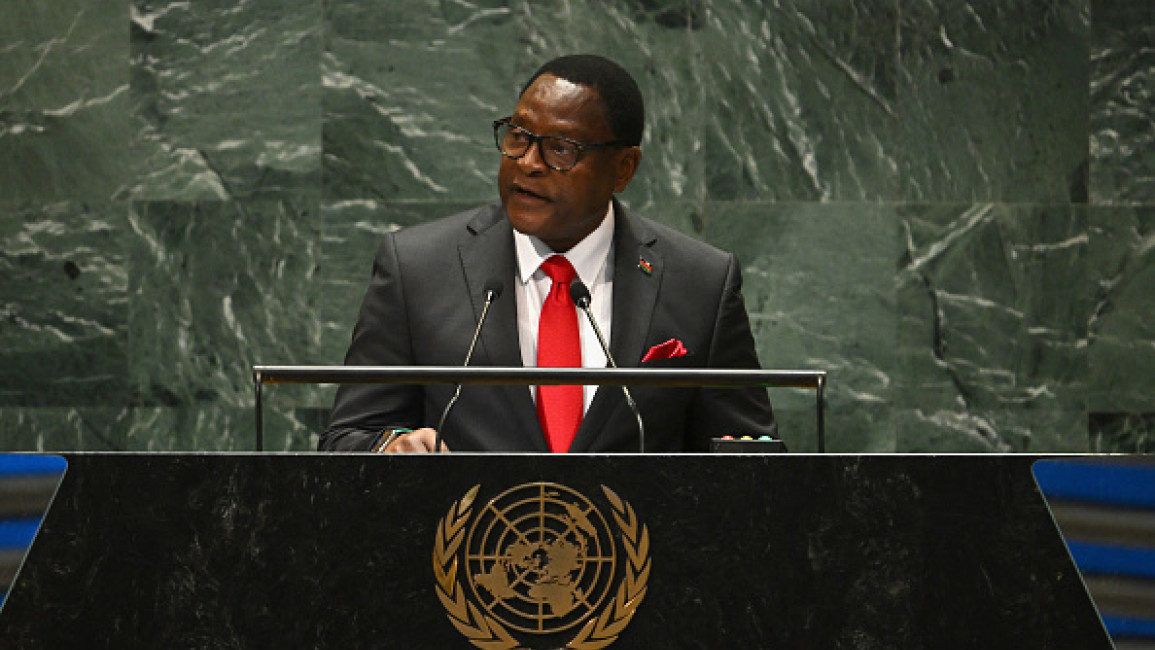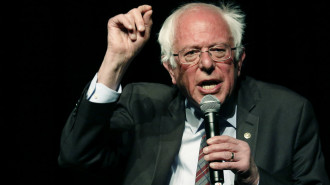Malawi activists demand government shift on Israel support as Gaza war escalates
Civil society groups in Malawi have called on the government to reassess its position on the Gaza conflict, criticising its diplomatic and economic ties with Israel as a contradiction to the nation's core values of peace and respect for humanity.
Malawi Palestine Solidarity Movement (MPSM), a leading pro-Palestine organisation in the country, issued a statement on Monday to demand the government to withdraw its support, amid intensifying calls globally to hold Israel accountable for its offensive on Gaza, as well as Lebanon as of recent.
The group’s latest remarks coincided with the one-year anniversary of the war on Gaza.
According to Gaza's health ministry, 41,909 people, the majority of them civilians, have been killed since the war began.
Assaboni Phiri, MPSM’s national coordinator, emphasised in a press briefing at the nation’s capital of Lilongwe that the government’s approach since last year signified its "full support of the genocide being perpetrated by Israel."
"Malawi is a signatory to a number of instruments on peace and all along we have valued peace and promoted dialogue whenever there are conflicts, but it’s very disturbing that the country has chosen to support Israel since the war broke out disregarding the suffering of women and children in Gaza," he said.
"This is a complete departure from our belief in peace and respect for humanity. But after one year, it was high time to change our stand in consideration of the level of damage that the war has caused to human lives."
Phiri argued that as a member of the UN’s Human Rights Council, as part of its legal and ethical obligations, it must take stricter measures against its ally to aid in halting the atrocities.
"Malawi is on the wrong side because what Malawi has done is against the principles of human life," he added.
Earlier this year, in April, MPSM sent a letter to Malawian President Lazarus Chakwera, the Ministry of Foreign Affairs, and Parliament Speaker Catherine Gotani Hara, as well as representatives from the US, India, South Africa, and Germany.
In the letter, MPSM's Phiri expressed concern over Malawi's growing relations with Israel.
"The Malawi government has joined the ranks of those who not only remain inactive against Israel but also openly support its actions," the letter stated.
MPSM called for an end to economic, political, and diplomatic ties with Israel, condemning its actions in Gaza.
Calls for a policy shift intensified after Malawi opened its embassy in Tel Aviv and signed an agreement to send nearly 1,000 citizens to work on agricultural farms in Israel at the end of last year.
Opposition parties and human rights organizations have expressed concerns over these continued ties and criticised the handling of the labour deal, which was seen as secretive.
Malawian opposition leader Kondwani Nankhumwa told BBC News, "Sending people to a war-torn country like Israel, where some countries are withdrawing their labour, is something unheard of."
He also questioned why the government only disclosed plans to send workers to an unnamed country on November 22, 2023.
In defence of the agreement, the government stated that exporting Malawians to Israel and other countries aligns with its commitment to job creation and youth empowerment.
They assured citizens of their safety, claiming workers would be deployed to locations deemed "fit and safe," with provisions for medical insurance and repatriation.
Malawi's relationship with Israel dates back to the 1960s when Israel sent doctors and agricultural experts to the nation.
Many Malawians have also travelled to Israel to study agriculture, a vital revenue source for the country.
Following the October 7 attacks, Malawi has maintained a pro-Israel stance, with officials referring to Israel as a "long-time ally and true friend."
This solidarity was reflected in Malawi's abstention from a UN vote calling for a ceasefire in Gaza in May and its vote against a September UN resolution aimed at ending the Israeli occupation of Palestinian territories.




 Follow the Middle East's top stories in English at The New Arab on Google News
Follow the Middle East's top stories in English at The New Arab on Google News
![The US vetoed a UN Security Council (UNSC) resolution demanding a ceasefire in Gaza [Getty]](/sites/default/files/styles/image_330x185/public/2185152251.jpeg?h=7ef8ac04&itok=RpLSj2pu)

![An attack by paramilitary forces in Sudan has killed at least 40 people [Getty]](/sites/default/files/styles/image_330x185/public/2182364341.jpeg?h=a5f2f23a&itok=r8Fkhxdj)